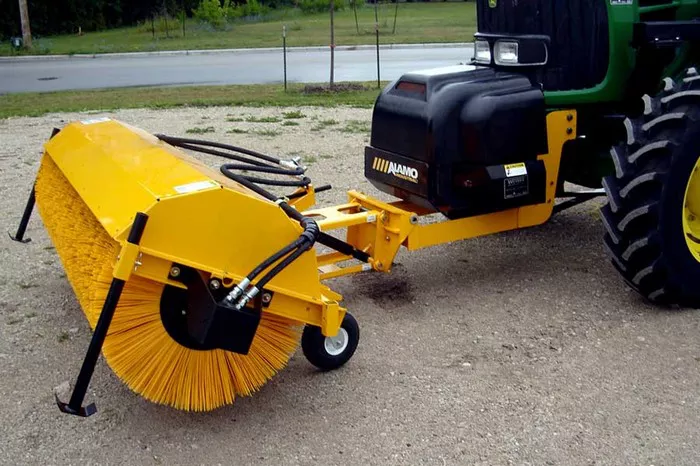Maintaining cleanliness and orderliness is vital in any environment, whether it’s a residential area, commercial space, or public facility. Among the unsung heroes of cleanliness are sweepers, individuals who play a crucial role in ensuring that our surroundings remain tidy and hygienic. While their job may seem straightforward, there’s more to it than meets the eye. In this guide, we’ll delve into the responsibilities, skills, and importance of sweepers in various settings.
The Importance of Sweepers
Sweepers are the backbone of cleanliness in many places, contributing significantly to the overall well-being of communities. Their work not only enhances the aesthetic appeal of an area but also plays a critical role in maintaining hygiene and preventing the spread of diseases. As the saying goes, “Cleanliness is next to godliness,” and sweepers embody this ethos by diligently removing debris, trash, and other pollutants from streets, sidewalks, parks, and other public spaces.
In addition to aesthetic and health benefits, the presence of sweepers also has economic implications. Clean surroundings attract more visitors and customers to commercial areas, leading to increased foot traffic and business opportunities. Moreover, a well-maintained environment fosters a sense of pride and belonging among residents, contributing to overall community satisfaction and well-being.
Responsibilities of Sweepers
The primary responsibility of a sweeper is to keep designated areas clean and free of debris. This involves sweeping sidewalks, streets, parking lots, and other public spaces using brooms, brushes, or mechanical sweepers. Sweepers must also collect litter and garbage, empty trash bins, and ensure that waste is disposed of properly.
Furthermore, sweepers may be tasked with additional duties depending on the specific needs of their environment. For example, in parks and recreational areas, they may need to clean restroom facilities, maintain flowerbeds, and remove graffiti. In industrial settings, sweepers may be responsible for cleaning warehouses, factories, and loading docks to ensure a safe and orderly work environment.
Skills Required
While the role of a sweeper may not require advanced qualifications, certain skills are essential for success in this profession. Attention to detail is paramount, as sweepers must thoroughly inspect their assigned areas to identify and remove all sources of litter and debris. Physical stamina is also crucial, as the job often involves long hours of standing and repetitive tasks such as bending, lifting, and sweeping.
Moreover, effective communication skills are beneficial, especially when working in public spaces where interaction with pedestrians and motorists may be necessary. Additionally, problem-solving skills are valuable for addressing unexpected challenges such as large spills or blocked drainage systems.
Challenges Faced by Sweepers
Despite the importance of their role, sweepers often encounter various challenges in the course of their work. One common challenge is dealing with inclement weather conditions, such as rain, snow, or extreme heat, which can make cleaning tasks more difficult and uncomfortable. Additionally, sweepers may face safety hazards such as uneven terrain, traffic congestion, or exposure to hazardous materials.
Furthermore, sweepers may encounter resistance or indifference from members of the public who litter or fail to properly dispose of waste. Educating the community about the importance of cleanliness and encouraging responsible behavior is an ongoing challenge that requires cooperation from all stakeholders.
Conclusion
In conclusion, sweepers play a vital role in maintaining cleanliness, hygiene, and orderliness in our communities. Their efforts contribute to the overall well-being of society by enhancing aesthetics, promoting public health, and fostering economic prosperity. Despite facing various challenges, sweepers carry out their duties with dedication and diligence, embodying the principle that cleanliness is a collective responsibility. As we acknowledge the invaluable contribution of sweepers, let us also strive to support and appreciate their work, ensuring that our environments remain clean and pleasant for generations to come.
FAQs
Q1. What equipment do sweepers typically use?
A1: Sweepers use a variety of equipment depending on the specific requirements of their environment. This may include brooms, brushes, dustpans, and mechanical sweepers. Mechanical sweepers, often used in urban areas, are equipped with rotating brushes and vacuum systems to efficiently remove debris from streets and sidewalks.
Q2. How can I become a sweeper?
A2: Becoming a sweeper typically requires a high school diploma or equivalent qualification. While formal education beyond this level is not mandatory, some employers may prefer candidates with basic literacy and numeracy skills. Additionally, physical fitness and the ability to work outdoors in various weather conditions are essential. Many sweepers receive on-the-job training to learn proper cleaning techniques and equipment operation.
Q3. What are some strategies for reducing litter in public spaces?
A3: Reducing litter requires a collaborative effort involving government agencies, businesses, community organizations, and individuals. Implementing effective waste management policies, providing adequate trash receptacles, and conducting public awareness campaigns can help encourage responsible behavior. Additionally, community clean-up events and volunteer programs can mobilize citizens to take pride in their surroundings and actively participate in keeping them clean.

